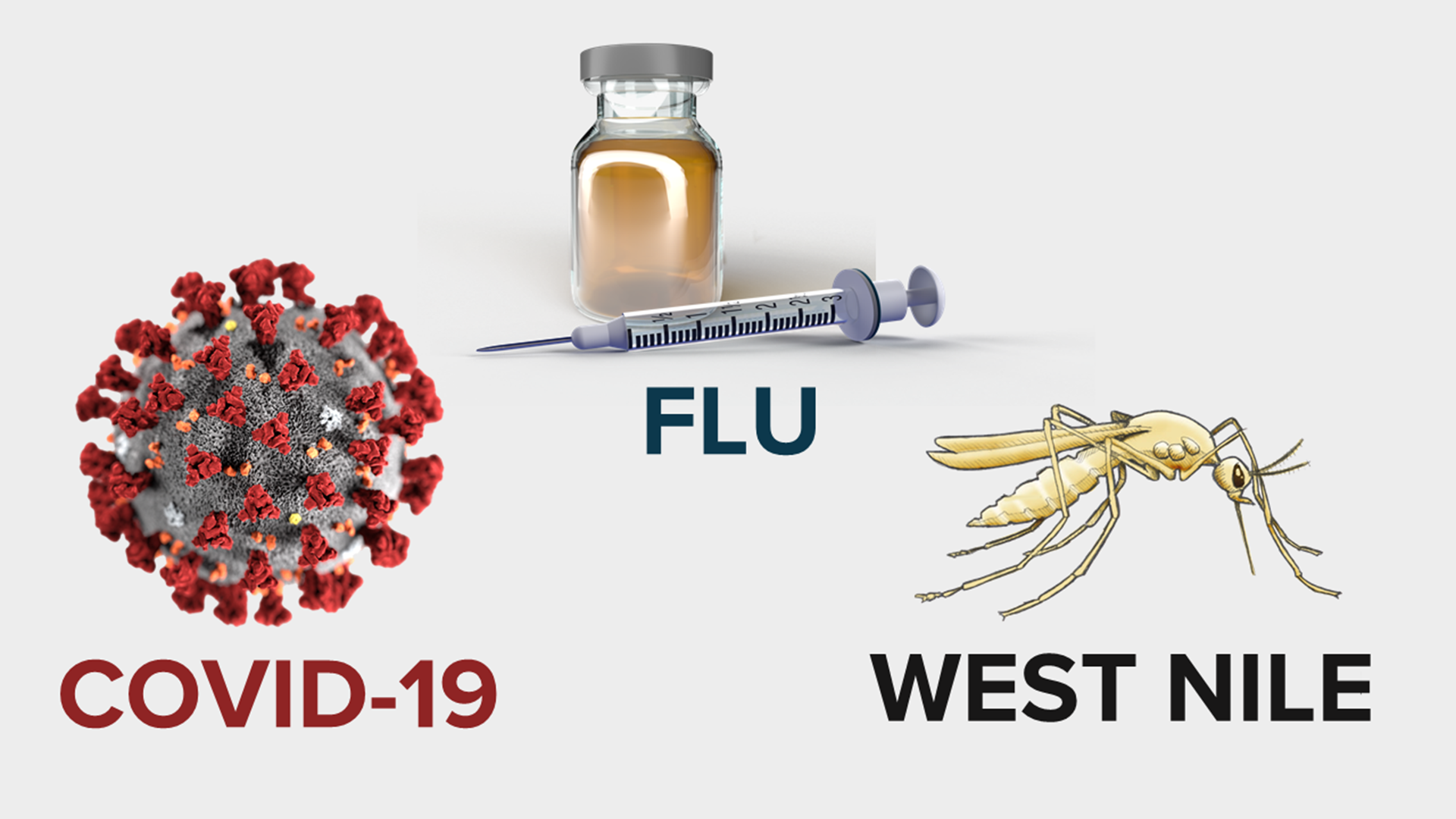DALLAS — Doctors are gearing up for a potentially busy fall season, dealing with the coronavirus (COVID-19), influenza (flu), and West Nile.
“I think this fall has the potential to be a significant trifecta for us, and this is not the positive trifecta at the horse race. This is, frankly, when things could go seriously wrong,” Dr. Mark Casanova, president of the Dallas County Medical Society, said. “The positive silver-lining is that we are well-versed and familiar with at least two of those: seasonal influenza and West Nile.”
However, it can be difficult to differentiate symptoms of the three viruses. Below is advice from Dr. Casanova.
COVID-19: “Distinct loss of sense and smell"
“COVID-19 has a much more unpredictable impact on the human body, and a much broader impact on the human body,” Dr. Casanova said. “There are a few nuanced symptoms that do appear to be particularly unique to COVID-19. And that is, that very distinct loss of sense and smell. For those, those are really clear tip-offs that that individual likely has COVID-19.”
“If we hear an individual express shortness of breath, that tends to make us more inclined to think of COVID-19,” Dr. Casanova said. “But again, unfortunately, for some individuals with very severe flu-like illness, that, too, can cause shortness of breath.”
WEST NILE VIRUS: “Headaches, malaise, and fatigue"
“West Nile Virus doesn’t tend to be as much of a respiratory illness. It tends to be more a neurologic illness: encephalitis, so headaches, malaise, fatigue, to even the extreme of very severe illness, and individuals slipping into comas,” Dr. Casanova said.
INFLUENZA, or the FLU: “Fevers tend to be higher"
“What tips us off a little bit more towards the flu, is that this tends to be an upper respiratory illness. The fevers tend to be higher,” Dr. Casanova. “There certainly can be the cough, (which) tends to be dry.”
Flu shots are now available at CVS and Walgreens. But is it safer to get one at the pharmacy or the doctor’s office?
“It’s probably, globally, a wash at the end of the day. I think what’s most important is that whether we’re at the doctor’s office, the pharmacy, or the grocery store, that we’re using our masks,” Dr. Casanova said. “The best place to get the flu shot is the place that you get the flu shot, provided you get it. That’s the take home message.”
So if you start to feel sick... call your doctor.
“At the end of the day, if you have any symptoms of concern, that make you think, ‘Do I have West Nile Virus? Have I acquired COVID-19? Or is this seasonal flu?’ What we would encourage individuals to do, is reach out to their physicians. Reach out to their healthcare homes. And explore that with your physician. You and your physician will then be able to navigate that and determine what testing is appropriate.”

